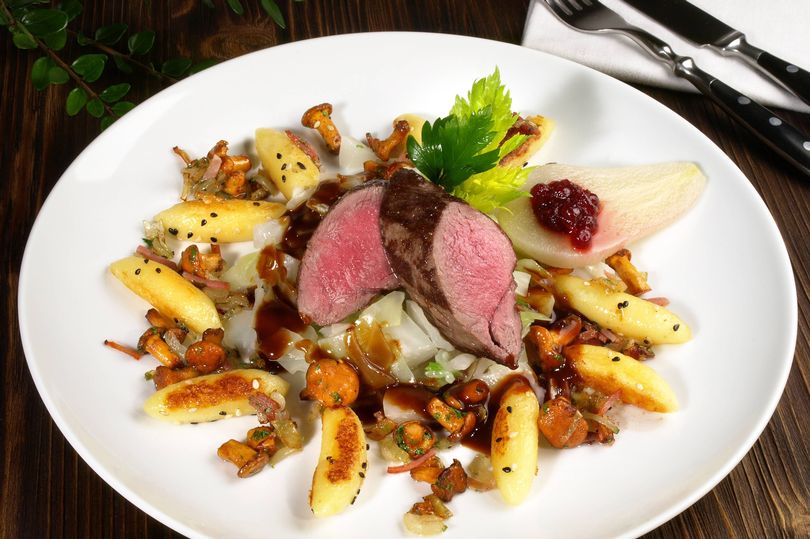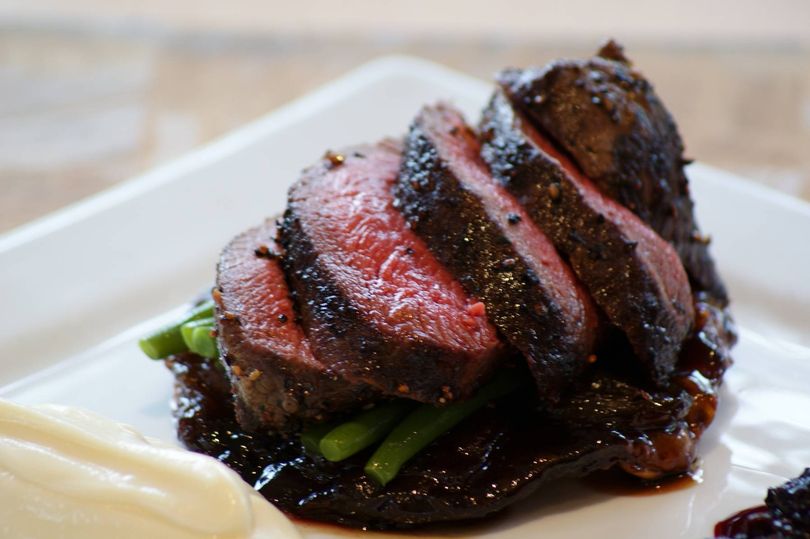
While chicken and turkey are frequently the preferred lean meats for many, there's anotherequally healthy choice that is often ignored- deer meat. Despite having the same fat and protein levels as chicken breast,venison sales are lower compared to other red meats.
According to the ZOE nutrition app, roasted venison contains 1.5g of fat and 21.6g of protein per 100kcals, which is similar to the nutritional content of a chicken breast. The onlyleaner option is turkey breast, which has only 1.1g of fat for every 100kcals and 22.6g of protein.
In comparison, ham contains approximately 3.1g of fat and 17.2g of protein, lamb has 4.6g of fat and 14.7g of protein, and a serving of gammon provides 6g of fat and 8.1g of protein, as reported by Surrey Live.
READ MORE: Renowned specialists list the top 10 'most nutritious foods' globally, with their advantages celebrated
READ MORE: Research indicates that protein powder may contain high levels of lead, prompting experts to advise against its use.
The amount of fat in beef differs based on the cut, but for example, a lean fillet steak has 4.3 grams of fat.

The unhealthiest meats are streaky bacon, containing 8g of fat and 7.1g of protein per 100kcals, and pork sausages, which provide 7.5g of fat and 4.9g of protein, according to the report.the Mirror.
Even though fish is not part of these numbers, ZOE recommends tuna if it were included, offering 588mg of fat and 23.8g of protein per 100kcals. Cod is also a good option, containing 755mg of fat and 23.2g of protein.
Venison, a flexible type of red meat, offers numerous cooking methods - from roasting, grilling, barbecuing, frying, pot-roasting, braising, to being incorporated into stews and casseroles.
In the past, the word "venison" was used to describe the flesh of any wild animal, but now it is typically linked with the meat from deer.
In the United States, the word "venison" doesn't only refer to deer meat - it also covers meat from any animals that have antlers, such as moose, antelope, elk, reindeer, and caribou.
BBC Food states: "The lean, red meat is low in fat and rich in flavor, and has gained popularity and is now widely accessible."
"Deer can be categorized as wild deer, park deer (kept in herds that wander through park areas), or farmed deer (with breeding methods ranging from open-range to high-intensity systems).
The most prevalent types of deer found in the UK include red, fallow, and roe.
Pure Gourmet, a supplier of meat, promotes venison as "the clean and nutritious red meat." They state "Venison is not only low in fat and cholesterol, but also rich in essential nutrients such as B vitamins, iron, and phosphorus."
Similar to other animals not raised on farms, deer meat is less prone to illness and is not fed a diet containing antibiotics and growth hormones.
Many individuals avoid it due to the perception that the taste is overpowering. Venison, in fact, offers a delightful, woody, and slightly fruity flavor that is truly remarkable. Avoid comparing it to beef, as there's no real match in terms of taste, although the texture is somewhat similar.
A report from Speciality Food Magazine stated that venison added approximately $15.2 million to the UK economy in 2022, showing a 20.3 per cent rise compared to 2019, yet it still represents a minor portion of the overall meat industry. Meanwhile, according to The Grocer's findings, beef is the most popular red meat in the country, with a market value reaching an impressive $3 billion in the previous year.
Bacon is in second place, with a value of £1 billion, followed by sausages, which are worth £963 million.
A 2020 study revealed that Waitrose makes up approximately one third of venison sales in the United Kingdom.
Although a large amount of the deer meat available in Britain is produced on local farms, imports from New Zealand also make up a considerable share of the market.